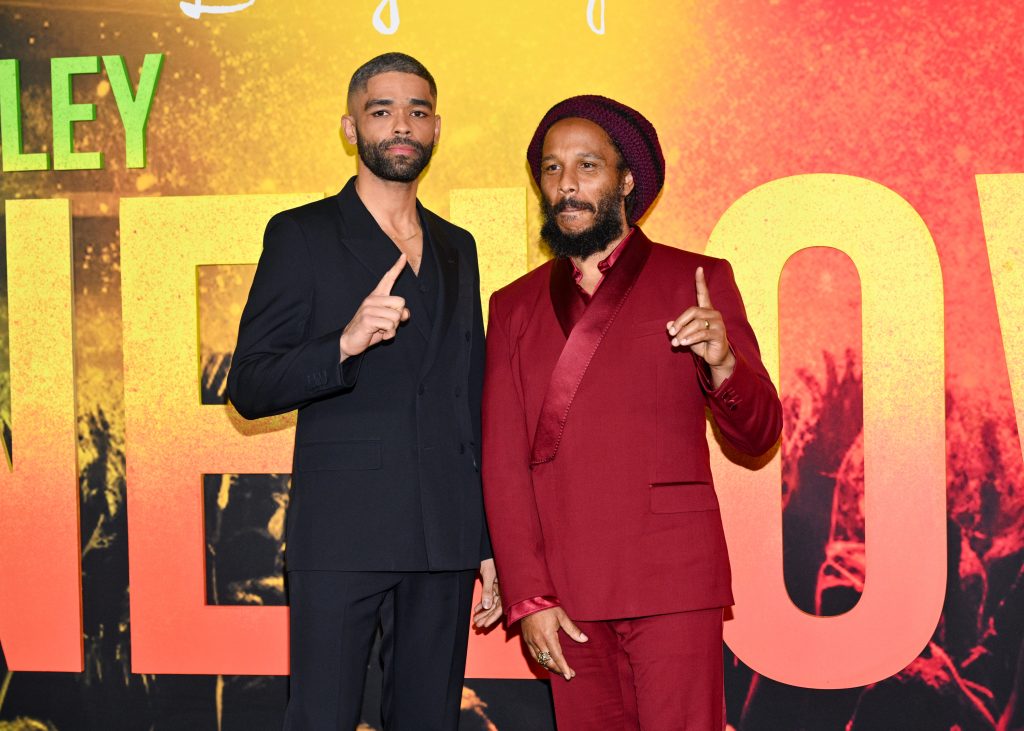Bob Marley: One Love: A Story of History, Music and Legacy
Bob Marley: One Love: A Story of History, Music, and Legacy
Review: The reggae artist’s rise to fame during a period of political unrest.

This past Wednesday, Bob Marley: One Love, the much-anticipated biopic of reggae’s most iconic figure, hit theaters. The film celebrates the legendary artist, played by Kingsley Ben-Adir, who spent his life spreading messages of love, peace, and unity worldwide. Released on Valentine’s Day, the timing couldn’t have been more fitting.
Though the movie dominated the box office opening weekend, it has received mixed reviews. Critics on Rotten Tomatoes have rated the movie 41% out of 100%, while the audience ratings on the site are much more approving at 91%.
Users are sounding off on TikTok as well. Many are praising the film, saying it truly showed the impact that Marley had from 1976 to 1978, when the movie is set. Others were bothered by the fact that it only showed this portion of Marley’s life, and felt like the story was difficult to follow or incomplete.
Regardless of reviews, it is evident that the movie was made by those who love Bob Marley and are passionate about his journey. At the beginning of the movie Ziggy Marley, Marley’s son, comes on screen and tells the audience to enjoy the movie, sharing that he was on set almost every day to ensure the story honored his father and was as accurate as possible.
It took years for Marley’s family to come around to the idea of turning his journey into a film. In an interview with The Associated Press, Ziggy explained that with the help of Paramount Pictures, director Reinaldo Marcus Green and a star studded cast, the family felt they were able to authentically capture this time in Marley’s life.
The movie begins with an assassination attempt against Marley that injured Bob, his wife Rita, his manager and a band member. The assassination attempt, along with the political upheaval in Jamaica, compelled Marley to move to Europe. The movie follows him to London, where he creates the album “Exodus” with his band. The album rises to the top of the charts and Marley begins selling out stadiums across Europe.
“Exodus” by Bob Marley and the Wailers was a pivotal moment in Marley’s career, catapulting him to global fame. The album was named Best Album of the 20th Century by TIME magazine.
The end of the film shows Bob Marley’s legendary One Love Peace Concert. In the 1970s, Jamaica was divided by two political parties: the People’s National Party, led by socialist Michael Manley, and the Jamaica Labor Party, led by Edward Seaga, a capitalist. Political tensions made the country tumultuous and seemingly on the brink of a Civil War.
Marley used his music to try and unite Jamaicans and bring peace to the world. At his One Love Peace Concert, he brings both Manley and Seaga on stage, where they shake hands. This act was seen as a strong symbol of peace during an unsettling time for the people of Jamaica.
The movie finishes with real clips of Marley that encompass who he was and the message he spread, making for a moving ending after audiences witness Marley’s exponential rise to fame.
“Are you a rich man…do you have a lot of possessions?” an interviewer asked Marley in 1979.
“…I don’t have that type of richness. My richness is life, forever,” Marley answered.
Bob Marley: One Love is an inspiring and compelling journey through Marley’s life and the legacy he left behind, inviting audiences to experience the depth of his music and the heart that inspired it. The film encourages its viewers, reggae fans and newcomers alike to explore the roots of the genre’s biggest legend.
